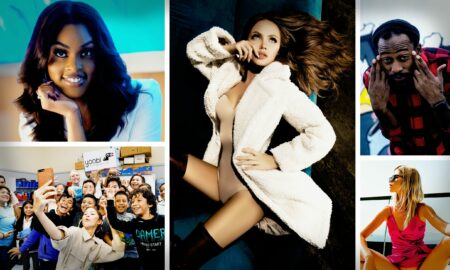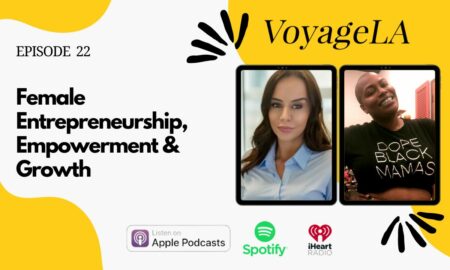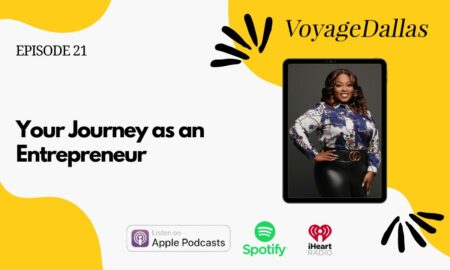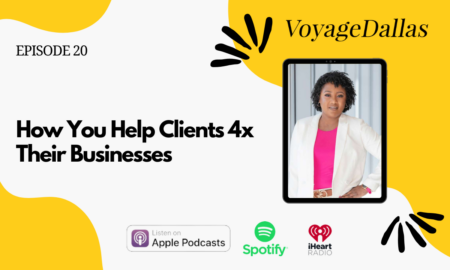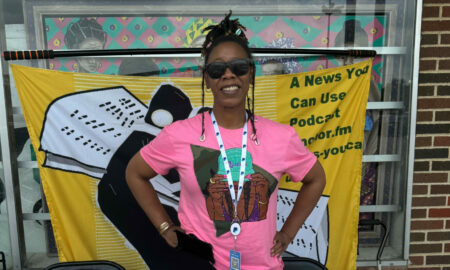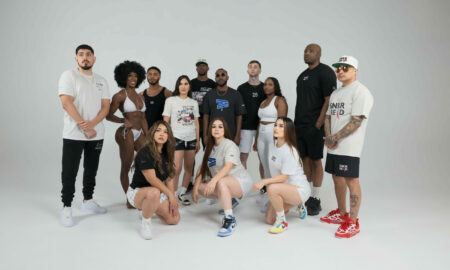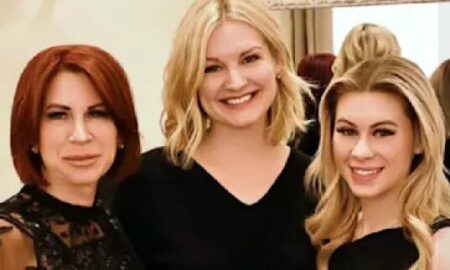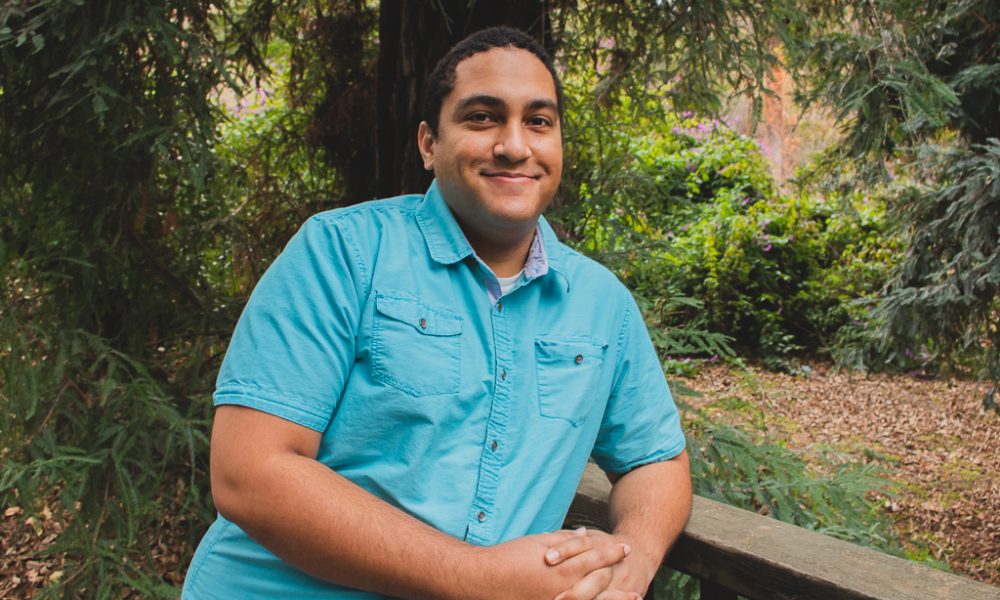

Today we’d like to introduce you to Dallas Harden.
Every artist has a unique story. Can you briefly walk us through yours?
Well, I’ve wanted to be a filmmaker even before my first memory. As a kid, I made movies with a VHS camcorder and I’d use two VCRs to edit them on to one tape. My family or my friends would star in these little films, and if I had nobody, I’d use my wrestling toys.
Once I got old enough to understand what was needed to make quality work, I realized I didn’t have an HD camera or a computer good enough to edit the footage. Without those resources, I decided to mostly become a screenwriter using WordPad to write. For many years, all I did was sit in my room and write, and by the time I was 20, I wrote at least two dozen screenplays, teleplays, stageplays, with over a hundred different outlines and ideas. Eventually, enough people believed in me and my scripts to let me start borrowing their cameras, lights, sound equipment, and even faster computers so I could edit. The first initial short projects were very rough since it was my first rodeo, so they weren’t going very far and I felt like I still had a lot to learn. I wanted to be more involved with the filmmaking scene locally, to soak up all the information I could because bonus features on DVDs aren’t enough; you need practical, real-world, first-hand knowledge.
In the summer of 2013, I wrote a post on Facebook asking if anyone needed help on any projects and luckily a close friend of mine answered. She wanted me to help her with a horror movie idea, so I jumped on the opportunity. When the movie was being made, I was astonished to see a whole film crew with equipment and everything to help make this vision come to life. I met a few people on that set who said they’d love to help me make my first movie in the future, so I got to writing and I contacted them all again, plus some new people I had just met at UC Riverside, which I was attending at the time. I was very fortunate to have a lot of people who were willing to put in the hours, lend locations, and share equipment to do something small but meant a lot to me. That film turned into my first official short, a romantic sci-fi film titled “Illumination. ” When I showed it to people, the reaction was mostly positive. Audiences seemed to resonate with it, and the best part was to see people physically react to the film by crying, or laughing, or engaging in a deep conversation about it after. I felt there were a few shortcomings, but of course, it was all a learning experience, and I wanted to take the next step forward.
For my next film, I wanted to do something bigger and harder to pull off. I wanted each film I made to not only be a challenge, but I wanted to help others in the way people helped me. I decided to try and make several short films back-to-back. One where I’d direct and the others I’d help produce or write or pitch in what ever way I can. This further blossomed my production company, DTH FILMS, to grow and build a bigger resume/reel of films. By the time that collection of movies was finished, we had grown a name for ourselves locally and a lot of people wanted to work with us, thus starting this initiative to try and make a slate of movies every summer. I also thought it was important to cast the films color blind by just looking for the best actors possible, with a diverse crew and an emphasis on finding female filmmakers. I hoped to look for the best actors and crew regardless of race and sex, to ensure we were hiring the best people for the job. The movies we’re doing may not be seen by many people, so maybe it doesn’t make any difference to mainstream cinema who we employ, but I went into this with the mentality of how I’d run things if given the opportunity to run a multi-million dollar production company and the movement I personally wanted to see.
On top of that, I really wanted to tell different captivating stories, utilizing all the genres possible. Although we don’t have a budget, trying to figure out how to make an expensive idea for cheap is the fun part. We currently have a sci-fi comedy about traveling through time and space, called “Space-Time Shenanigans” and a horror movie with makeup FX about sleep paralysis called “Lucid Dark.” Each come with their own set of challenges that are sometimes beyond our means of technical equipment or money. We really wanted to be bold and capture not only a crowd’s attention but also their imaginations. Fortunately, we’ve won a handful of awards at a few free film festivals, like Best Drama, or Best Editing, and even Best Film. I’ve also won awards for my playwriting and once had a play of mine produced for a weekend.
As of today, DTH Films is a very homegrown operation, and I still don’t have a computer to edit or a camera of my own to film with, and everything is borrowed to make these films come to life. Super special shout-out to Oscar Ho, because without him, my last couple of films probably wouldn’t have been made at all. Literally, nothing would be possible without a great set of people believing in what we do and offering their time and assistance. Going forward, we hope to keep the same spirit alive and hopefully make our first feature film within a year or so, but of course, that’d require funding.
Please tell us about your art.
I make short films as a director, producer, screenwriter, actor, and editor, among many other jobs on a set. There are films also not related to DTH Films that I participate in, where I’ll often be an assistant director, or hold a reflector as a camera assistant, or even be an extra in the background. I’m doing as many things as I can to help. The crews that work on our films often consist of students, so I’m also teaching them how to do their specific jobs. Everyone is usually great in helping out like that and our actors are often multifaceted and pitch in any way they can. For example, Irais Cardenas was the lead actress in “My First Hook Up,” but also the production designer, filling her car to the brim with props and set design for weeks. Cali Morales did the makeup FX on “Lucid Dark” while also acting in the film, and commuting from Los Angeles to Riverside every day to be there at 7 in the morning. It’s amazing how willing and motivated our team can be to get a film done, just for the love of the art.
Currently, I work at UC Riverside for their Theatre, Film, and Digital Production department. Mainly, I’m in their film equipment room, assisting students with their films by teaching them how to use the equipment. Luckily, I still get to be creative every day through editing and cinematography in the Acting for the Camera class. There are various film projects that I get to be a part of all times of the year. Right now, I’m head of the sound crew for the department film, where we’re lucky enough to have Dean Cundey, A.S.C. (Jurassic Park, Back to the Future trilogy, Halloween) as our cinematographer for two short films. I like to think I’ve been very fortunate to find a job where it’s always something new, while also flexible in schedule so I can still pursue a career in the film industry.
With the movies that I produce at DTH Films, I try to make sure they’re always unique, but tap into the social zeitgeist at the time and how people deal with what’s going on in the world on a personal level, or with how people interact with one another. I try to be current or ahead of the curve, and bring up issues that are often glossed over in our society. I draw inspiration from my personal life and combine it with fantasy to create an interesting story. I also like to take current events/topics and build a film around the conversation, to create a further dialogue. For example, when Monique Guzman presented the idea of “Let’s Talk About Jane” to me (a drama that takes a look into the mounting pressure of a college student’s life and their eating disorder), I felt like it was important to tell that story because it was something that is not ever shown on film, yet so many people go through it. On the opposite side of that spectrum, “My First Hook Up” is a comedy that examines this generation’s dating society and how hookup culture has become its own form of liberation or self-destruction. For that film, I drew from teen-sex comedies that usually starred men, but I put women at the forefront having these frank and vulgar conversations to challenge our ideas of what’s taboo.
It’s important to me that our films have something to say, no matter the genre. We’ve tackled depression, suicide, self-harm, sexual assault, loss of memories, loss of friendships or relationships, mental illness, and so many more subjects in such a short amount of time. I’m very proud of that and constantly strive to do it in a way that makes it accessible for people to watch. Whether the film is fun, sad, scary, weird, or thought-provoking, I want to make movies that not only entertain, but also put something at the forefront of our minds, sometimes bluntly or in a different perspective.
What do you think about conditions for artists today? Has life become easier or harder for artists in recent years? What can cities like ours do to encourage and help art and artists thrive?
My advice is to not let anything get in the way of what you want to achieve and always find a way, no matter how cheap it is. I often write with a budget in mind, but sometimes, I will write something very crazy in my script and just think, “I’ll figure it out later, but this needs to be in there.” And people will read those parts and wonder, “How are you possibly going to pull this off?” And that’s the exciting part! Creating what are essentially magic tricks to get the effect and doing it all on screen in real time or just a small tweak in the edit.
I think the best thing to do is to ask people for help, with coming to set or asking how things are done. I’ve been extremely surprised how many people are willing to help if you’re passionate. I’ve been lucky enough to film in really nice restaurants or take over entire small theme parks just by asking. Especially in film, you never know unless you just try, and it doesn’t hurt to try. Don’t be afraid of being rejected or of failure, it’s part of the process. You definitely have to have thick skin because you’re going to face a lot of adversity and criticism, but try to look at it positively and part of the learning experience.
I see way too many people get frustrated when they start out because they want to be a natural, or they want this to be easy, or they think they’re right on their first time despite all the advice they’ve been given. Sometimes it’s because of arrogance or they’re naive, but filmmaking genuinely takes talent, skill, patience, and years of studying with major roadblocks that you’ll only find solutions to with experience. It’s always a good idea to have a positive attitude and to listen to your peers, the audience reactions, and veterans in the field.
Some people need to fail in order to find that out though. However, I think that’s one of the main things that hold a lot of people back about pursuing this industry is they’re afraid of putting themselves out there and failing. Sometimes you need to fail big to find out how to make something successful. It’s art: it has to be all you and organic, you have to be your most vulnerable and that’s what is going to be key in people wanting to see your art.
I personally struggle with all the financial stuff every day, so I’m hoping one day to get out of that hole myself, but I have to stay positive and keep trying! Luckily, with film these days, we have smartphones at our fingertips that take 4K video and there’s free software everywhere to write or edit, so becoming a filmmaker has never been easier, but becoming a paid filmmaker making Hollywood level films is the tricky part.
What’s the best way for someone to check out your work and provide support?
We hope people subscribe, like, and share our content! That is always key to getting it more out there. And most importantly, create a conversation among friends and to create awareness and exposure, not only about the topics in the films but the cast & filmmakers who are extremely talented and deserve to be recognized for their hard work. Like I’ve said before, we do this essentially for free, every movie has been made for less than $500.
Our ambition, of course, is to one day do this on a bigger level with more of a budget, working with major production companies, and help from studios. Every little bit helps make our movies grander and it solidifies our vision just that much more. We all want to go on and hopefully be paid to do what we love because it is genuinely hard to make movies for no money. It’s asking a lot from people, especially as we get older, to spend time away from their jobs & families, and it’d be great to have the funding or to get into bigger festivals or to lock down professional positions in Hollywood so we can do this every day and be supported financially. That’s the dream, right?
Contact Info:
- Email: DTHFilmsCasting@gmail.
com - Instagram: https://www.
instagram.com/1800DallasH - Facebook: https://www.
facebook.com/DTHFilms - YouTube: https://www.youtube.
com/DTHFilms1 - IMDb: https://www.imdb.com/name/
nm6518232/



 Image Credit:
Image Credit:
Irais Cardenas
Nathan Goodwin
Getting in touch: VoyageDallas is built on recommendations from the community; it’s how we uncover hidden gems, so if you know someone who deserves recognition please let us know here.










